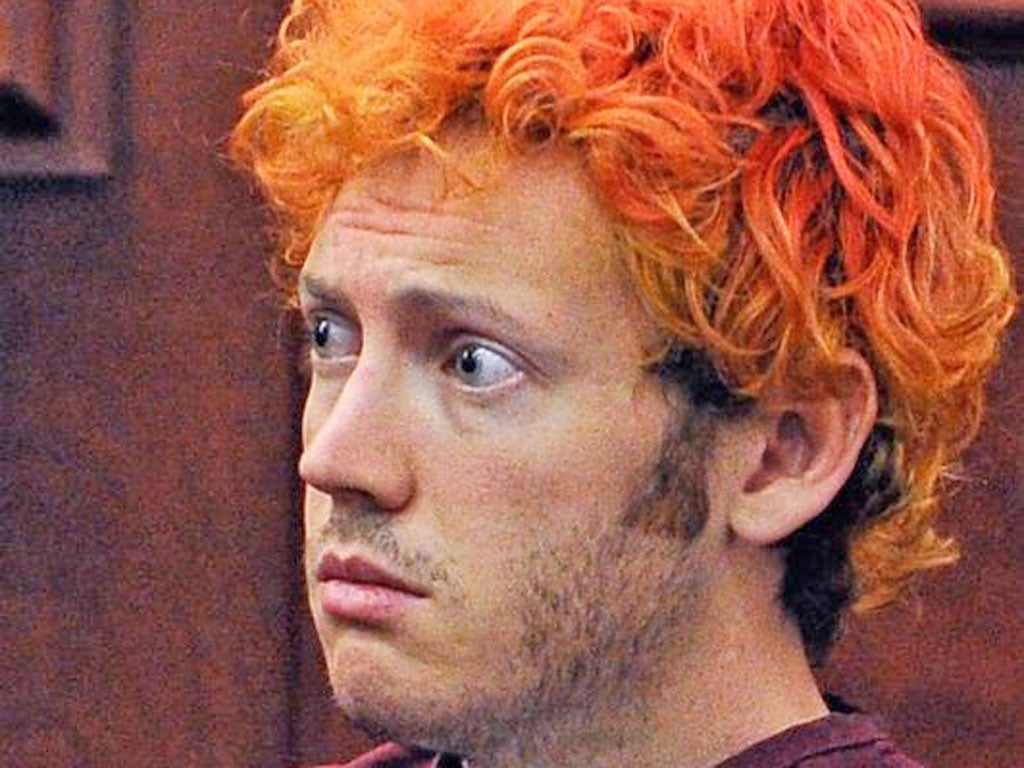Questions raised over ‘truth serum’ interview for suspected Aurora shooter James Holmes

Your support helps us to tell the story
From reproductive rights to climate change to Big Tech, The Independent is on the ground when the story is developing. Whether it's investigating the financials of Elon Musk's pro-Trump PAC or producing our latest documentary, 'The A Word', which shines a light on the American women fighting for reproductive rights, we know how important it is to parse out the facts from the messaging.
At such a critical moment in US history, we need reporters on the ground. Your donation allows us to keep sending journalists to speak to both sides of the story.
The Independent is trusted by Americans across the entire political spectrum. And unlike many other quality news outlets, we choose not to lock Americans out of our reporting and analysis with paywalls. We believe quality journalism should be available to everyone, paid for by those who can afford it.
Your support makes all the difference.A Colorado judge has given permission for James Holmes, the suspected Aurora shooter, to be interviewed using intravenous injections of so-called "truth serum" if the defendant pleads not guilty by reason of insanity.
In the event of such a plea the prosecution will be allowed to administer a barbiturate to Holmes as they question him. Sodium Amytal is typically used in such cases, and while the drug does not encourage "truth telling" per se, it lowers inhibitions and prompts a willingness to talk. It is hoped that, should the defendant be 'putting on' insanity, the drug will expose his deception.
But a number of critics have spoken out in wake of the decision. "[This treament] is unproven in its ability to produce reliable information and it's not a standard procedure used by forensic psychiatrists in the assessment of the insanity defense" Dr Steven Hoge, a clinical professor of psychiatry at Columbia University, told ABC News.
Salon's Natasha Lennard reports on the ethical doubts. First seen in the 1940s, when a psychiatrist claimed to have exposed the malingering of a group of soldiers, many object to using a medical drug for nonmedical purposes.
Moreover, Slate's Brian Palmer says there are better ways of proving or disproving insanity. It's hard to keep up the deception 24 hours a day, he notes, and patients like Holmes are often subject to round-the-clock monitoring.
Join our commenting forum
Join thought-provoking conversations, follow other Independent readers and see their replies
Comments